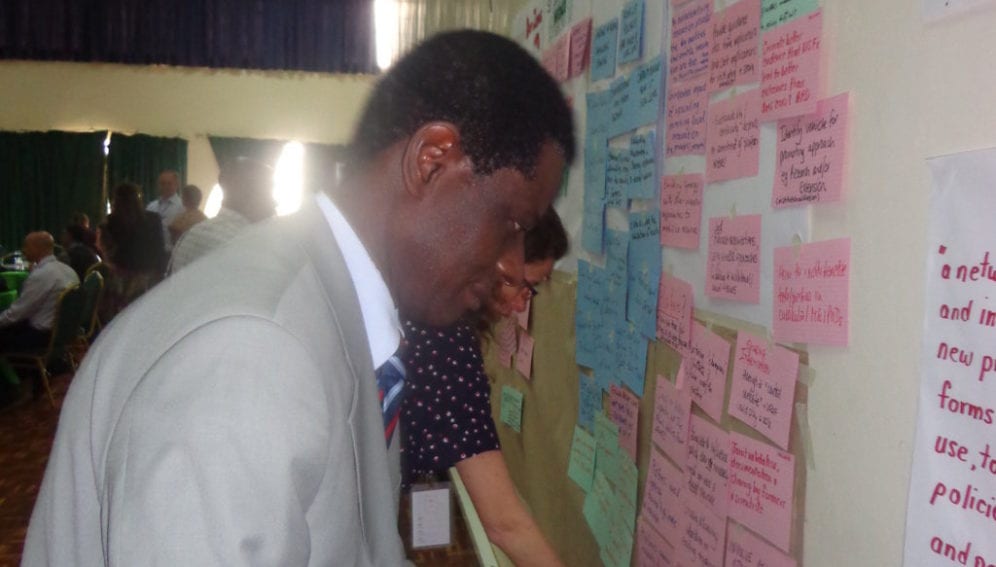By: Semiu Babalola
Send to a friend
The details you provide on this page will not be used to send unsolicited email, and will not be sold to a 3rd party. See privacy policy.
[IBADAN, NIGERIA] African countries can solve poverty and hunger problems by adopting integrated systems research in agricultural development, experts say.
According to the Food and Agricultural Organization (FAO) report released last year, more than 805 million people worldwide were chronically undernourished for the period 2012-2014, and although it was lower than the 1990-1992 figure by about 200 million, developing countries, especially those in Sub-Saharan Africa bears the brunt of the problem.
Scientists from 30 nations, including Ghana, Kenya, Nigeria and Uganda who attended an international conference on 3-6 March in Nigeria urged African governments to place the smallholder farmers at the pinnacle of their agricultural development research activities to help tackle food insecurity.
“Smallholder farmers are at the centre and, therefore, as researchers, we need to partner with the farmers, strengthen their opportunities so that the research we carry out benefits the people and farmers.”
Kwesi Atta-Krah, CGIAR’s Research Program on Integrated Systems for the Humid Tropics
“Smallholder farmers are at the centre and, therefore, as researchers, we need to partner with the farmers, strengthen their opportunities so that the research we carry out benefits the people and farmers,” said Kwesi Atta-Krah, the director of CGIAR’s Research Program on Integrated Systems for the Humid Tropics, one of the organisers of the conference.
Systems research is a holistic, bottom-top, inclusive and sustainable approach to achieving development objectives, John Ainembabazi, a researcher at International Institute of Tropical Agriculture in Uganda, told SciDev.Net. In systems research, the researchers not only assess the farmer, but also environmental and other socio-economic factors.
Ann Tutwiler, the director general of Italy-headquartered Bioversity International, said the added values of the new integrated systems research approach are high and include increased income for farmers, poverty reduction and food security.
Yemi Akinbamijo, the executive director of the Forum for Agricultural Research in Africa, which has its headquarters in Ghana, noted that systems research is an innovation and has proven to be a credible.
Participants noted that systems research could be used as a vehicle for achieving the 2030 Sustainable Development Goals agenda or the post-2015 agenda, which will succeed the millennium development goals.
The scientists called on the donor community, agricultural research institutions, development partners and policymakers to strengthen the use of systems research in agriculture to achieve greater development.
However, according to Atta-Krah, the major challenge identified in the adoption of integrated systems research is lack of trained human resource. “So there is need for capacity building to scale up its adoption,” Atta-Krah added.
This article has been produced by SciDev.Net's Sub-Saharan Africa desk














